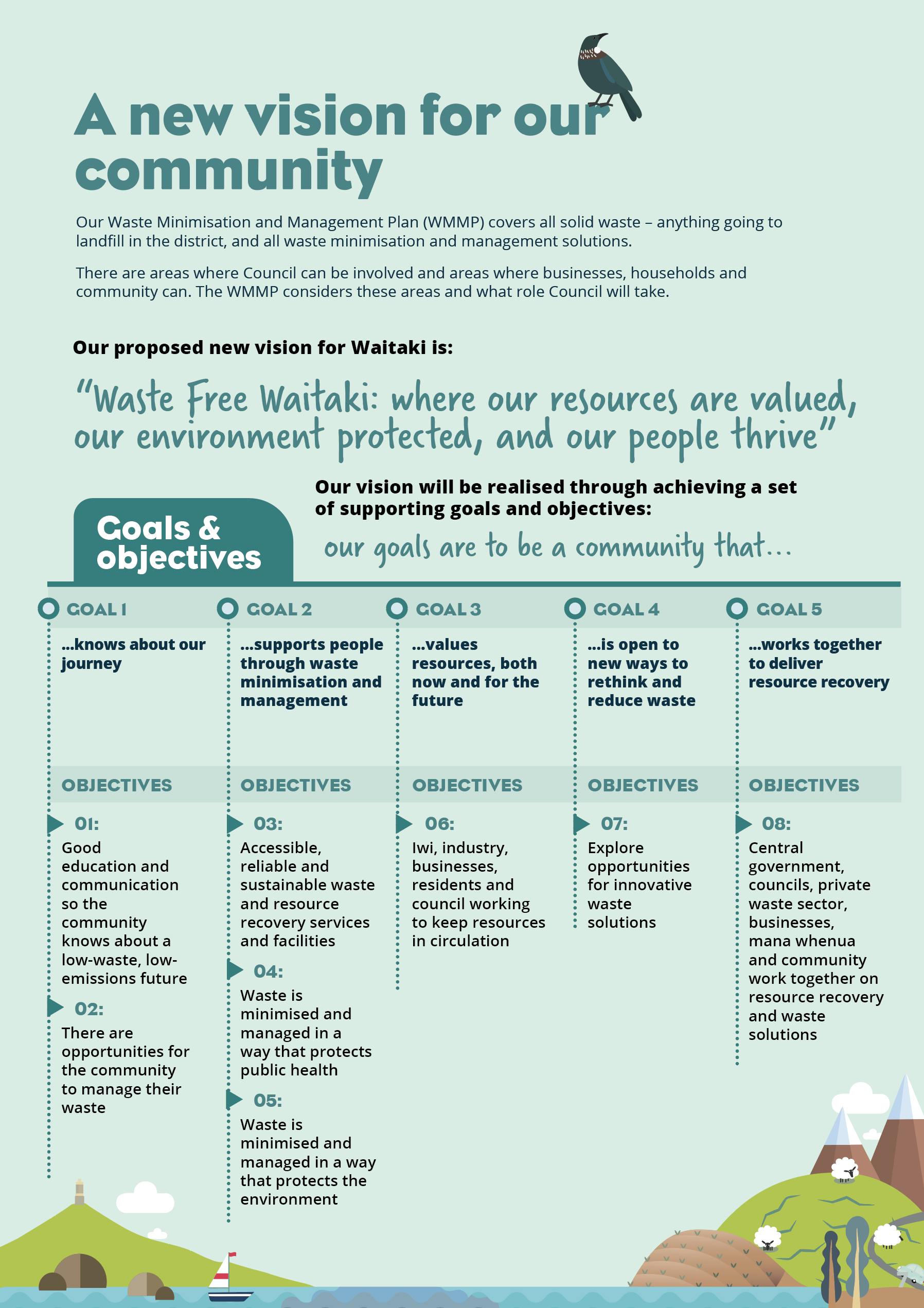Let's talk trash
Consultation has concluded
Feedback on our draft Waste Minimisation and Management Plan is closed but you can still read all about it here.
Most of the materials we use or create end up in landfill once we are finished with them.
Last year Waitaki sent 9,433 tonnes of waste to landfill. Every year New Zealanders generate 17 million tonnes of waste and we send 13 million tonnes of it to landfill.
The way we manage that waste is behind many other developed countries.
When we don’t manage waste creation or disposal as well as we could, it costs us and our environment. It can have impacts on public health, as well as create challenges for our future generations.
Our plan for better waste solutions.
The Waste Minimisation Act 2008 says Councils must “promote effective and efficient waste management and minimisation” and adopt a Waste Minimisation and Management Plan.
The Waste Minimisation and Management Plan must be reviewed every six years. That includes a waste assessment.
Our 'Waste Free Waitaki' consultation document is a Statement of Proposal for our draft Waste Minimisation and Management Plan.
It's a summary of what’s in the plan. It explains the key things we want you to know about and get your feedback on.
- Read the Consultation Document
If you want more details you can read the full draft plan and our Waste Assessment.
We have an opportunity to step it up when it comes to how we create and deal with waste as a community.
Once upon a time, we dumped rubbish right next to the coast...
Now, we’re paying the price. The sea is eating into the old Hampden dump and two places on Beach Road where rubbish was just thrown off the cliff. We’ve got to move that junk before it ends up in the ocean.
What does that tell us? We’ve got to do better, and we’ve got to learn from our past and think to our future. And that’s what this new plan is about. Thinking differently about what we waste.

What are we focusing on?
Our draft Waste Minimisation & Management Plan (WMMP) looks at how to address key issues and meet future demand through:
- Leadership and Collaboration
- Engagement and Education
- Collections and Infrastructure
- Regulation and Monitoring
Read more about it in our Consultation Document.
Got a question about Waste Minimisation and Management in Waitaki? Ask it here and our Waste Team will get back to you with an answer.



